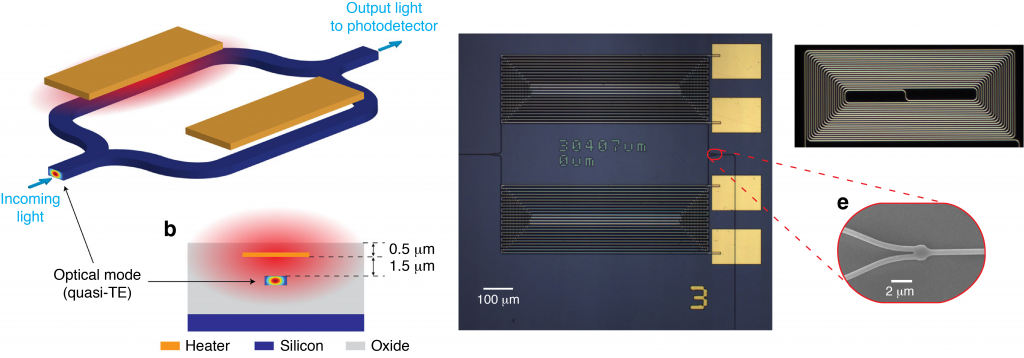
Congratulations to Mario! In a recent collaboration between prof. Newton Frateschi and Mario Souza with prof. Yeshaiahu Fainman from UCSD our team has published a new design for a fourier transform spectrometer.
Media Highlights:
Espectrômetro de infravermelho que cabe em um chip (Portuguese version)
Infrared spectrometer on a chip (English version)
Un espectrómetro de infrarrojo que cabe en un chip (Spanish version)
Check out the full paper at:
Abstract:
Miniaturized integrated spectrometers will have unprecedented impact on applications ran- ging from unmanned aerial vehicles to mobile phones, and silicon photonics promises to deliver compact, cost-effective devices. Mirroring its ubiquitous free-space counterpart, a silicon photonics-based Fourier transform spectrometer (Si-FTS) can bring broadband operation and fine resolution to the chip scale. Here we present the modeling and experi- mental demonstration of a thermally tuned Si-FTS accounting for dispersion, thermo-optic non-linearity, and thermal expansion. We show how these effects modify the relation between the spectrum and interferogram of a light source and we develop a quantitative correction procedure through calibration with a tunable laser. We retrieve a broadband spectrum (7 THz around 193.4 THz with 0.38-THz resolution consuming 2.5 W per heater) and demonstrate the Si-FTS resilience to fabrication variations—a major advantage for large- scale manufacturing. Providing design flexibility and robustness, the Si-FTS is poised to become a fundamental building block for on-chip spectroscopy.
